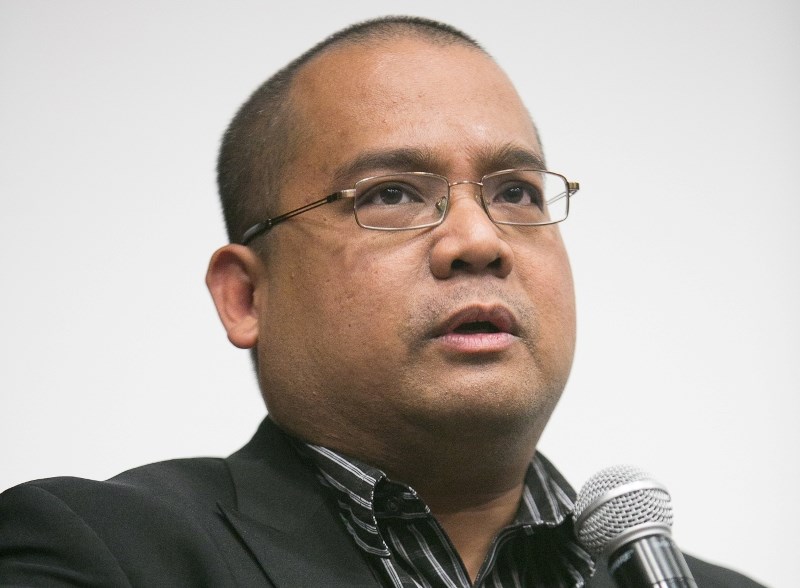Transgender people – people who identify as being a member of the opposite sex than the one they were born into – are evading reality, according to a speaker at a religious conference in Olds.
If they can do that, then why shouldn't people who have eating disorders, like anorexia or bulimia be allowed to identify as too big?
That's the question speaker Jojo Ruba gave Oct. 15 during a talk on transgenderism. It was part of the Unveiling the Truth religious conference, held Oct. 14 and 15 at the TransCanada Theatre and Olds First Baptist Church.
Ruba is executive director of Faith Beyond Belief, which helped organize the conference in conjunction with New Hope Pentecostal Fellowship and First Baptist Church.
“When it comes to gender identity, does gender define our feelings or do our feelings define gender?” Ruba asked.
“The whole debate about transgenderism is based on the notion that I can feel so strongly that I am someone of a different identity that I'm going to adopt that identity,” he added.
“But is that the healthiest way to deal with feelings? That you change the reality to suit your feelings? Isn't it the case that it's the other way around? We change our feelings to adapt to reality.”
To illustrate his point, Ruba cited the case of patients who have anorexia nervosa or bulimia nervosa.
According to Wikipedia, anorexic people believe they are overweight when in fact if anything, they're underweight. They eat very little food to lose more weight and can keep on doing that – in some cases, until they die or come close to death.
According to the Canadian Mental Health Association, bulimics secretly binge on food, then purge it by vomiting, using laxatives, or taking other actions to get rid of it – again in an effort to lose weight.
“Is that something that most people recognize as a mental illness? Absolutely. Why? Because their thought process doesn't match reality,” Ruba said.
“Are we actually helping (transgender people) if we encourage them to adopt reality this way solely on their feelings?” Ruba asked.
“Because if we let them do that, then why not let people who are bulimic or anorexic adopt the view that they are really overweight, even if their biology says that they're not?”
Ruba said according to the Bible, men and women are made in the image of God.
“If God made us in his image as male and female and we choose to live as the opposite gender, are we really living out the identity that God gave us?” he asked.
“We need to understand this. This is not a physical problem,” Ruba said. “I think it's an emotional issue, where your emotions and the feelings and identity don't match a person's body.”
He said the Christian world view should be seen as “the least sexist one,” because the Bible says men and women are made in the image of God.
“We cannot erase masculinity or femininity – nor should we, because in doing so, we actually erase God's image here on earth,” he said.
"Is that the healthiest way to deal with feelings? That you change the reality to suit your feelings? Isn't it the case that it's the other way around? We change our feelings to adapt to reality."JOJO RUBASPEAKER AT RELIGIOUS CONFERENCE



